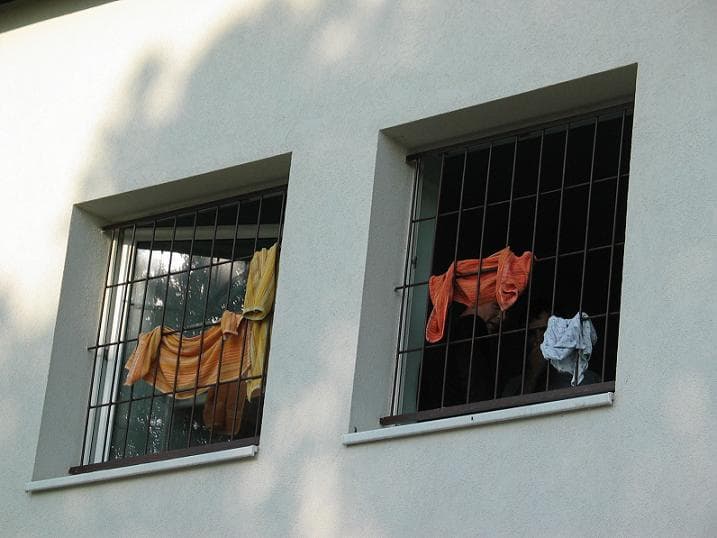Stuck in Jail – Immigration detention in Hungary in 2010
The Hungarian Helsinki Committee visited 9 new, temporary immigration jails in August 2010. The findings of these missions are summarized in a report.
The Hungarian Helsinki Committee visited 9 new, temporary immigration jails in August 2010. The findings of these missions are summarized in a report that can be accessed here.
The report makes the following recommendations to the competent authorities:
1. Children and vulnerable persons shall not be held in immigration detention.
The HHC urges that children be never detained for reasons related to their immigration status, illegal entry or stay as well as persons whose exact age cannot be assessed properly. The current detention facilities and regimes are inappropriate for children, not offering leisure activities, access to education, psycho-social care and playing etc.
Vulnerable persons with special needs including pregnant women, torture victims, elderly people and persons with a mental and physical disability should not be detained unless it is an inevitable measure of last resort.
2. Asylum seekers should only be detained in well justified cases.
The OIN is urged to use this measure as a last resort only in a limited number of justified cases in compliance with the current legislation. Ordering or prolonging alien policing detention should not be automatic and it should always take individual needs and vulnerabilities into consideration in every case.
3. Physical conditions of detention shall meet international standards.
Detention should only be carried out in facilities where proper conditions can be ensured. The HHC therefore recommends the refurbishment of all immigration jails and proper equipment suitable for lengthy detention periods as well. This would include the significant improvement of hygienic standards (toilet and sink facilities in all cells), at least 5 square metres of moving space in the cells and community areas made available for all detainees in a flexible regime. The practice of locking immigration detainees in their cell for most of the day should be avoided, all immigration jails should be suitable for the application of a regime enabling more free movement inside the facilities. This makes the occurrence of violent acts less frequent.
4. At least one hour of outdoor stay has to be granted daily.
The only way to reduce tension and the occurrence of violent acts is to provide meaningful daily activities for the detainees. In HHC’s opinion it is indispensible to allow at least one hour of outdoor stay and activity for the detainees. All jails should be transformed in a way that there was a suitable courtyard for sport activities on its territory.
5. Psycho-social care should be made available.
Access to proper social and psychological care should be made available on a permanent basis in all immigration jails, and cooperation between the Police and the non-governmental sector should be strengthened.
6. Sufficient nutrition needs to be provided.
The HHC strongly recommends that according to the relevant legal provisions21 the Police provide sufficient and appropriate nutrition to all immigration detainees. The dietary needs and traditions of detainees should be better observed in this respect. Thus it would be important to increase financial resources and also to mploy dietary experts with relevant experience.
7. Proper medical care must be provided.
In order to avoid the deterioration of the detainees’ physical conditions regular medical checkups have to be carried out by independent and available physicians that detainees trust. The practice of providing detainees only with tranquilizers and sleeping pills has to be stopped immediately.
8. Meaningful recreational activities have to be ensured.
Relevant legal provisions have to be respected in order to provide recreational activities for the detainees. Libraries, foreign TV channels, games and sport equipments have to be purchased and provided in all detention facilities especially that the maximum time of immigration detention was raised to 12 months in Hungary from 24 December 2010.
9. Adequate training for jail staff should be ensured.
Police and security staff needs to be trained effectively and on a regular basis in order to better know and respect relevant human rights obligations and to improve their intercultural and conflict resolution skills. It would be useful if the Police cooperated with NGOs and the UNHCR and other external experts in this respect.
